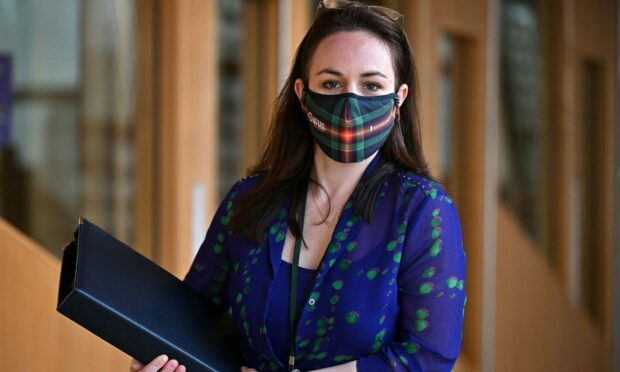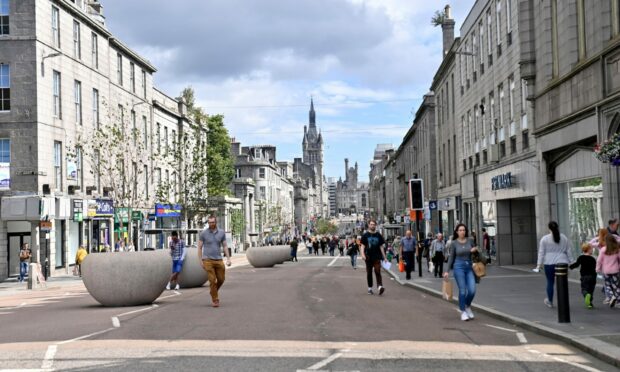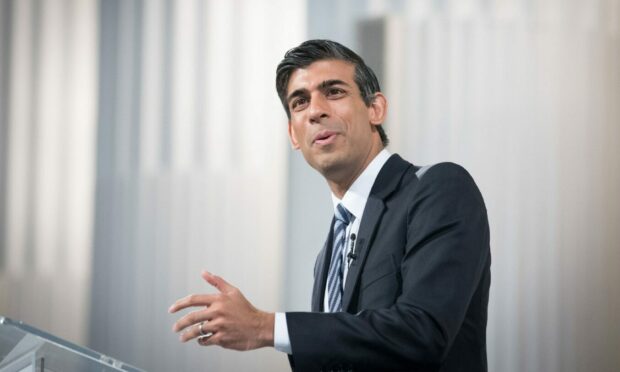Nearly two million households in Scotland will receive a £150 council tax rebate in April, under new measures announced at Holyrood.
The rebate works out at just over £47m across the north and north-east for people in council tax bands A to D.
Finance Secretary Kate Forbes confirmed a £290 million package of support as she outlined the final tweaks to the government’s spending plans for the year ahead.
All the £290m will be spent directly on helping struggling families hit by rising energy bills – but Ms Forbes admitted it “is not enough”.
The budget – the first full review by the SNP-Green administration – passed its third and final stage on Thursday by 69 votes to 54.
Here are the key measures in the spending plans:
1. Cashback for cost of living crisis
UK Chancellor Rishi Sunak confirmed last week that additional cash would be given to Holyrood after Ofgem revealed energy bills could surge by 50% from April.
Ms Forbes confirmed the full £290m will be passed on to help families now amid a cost of living crisis.
This cash will be spent on:
- All homes in council tax bands A-D will receive a £150 payment or discount from their council tax bills.
- This will also include every household in receipt of Council Tax Reduction in all council tax bands.
- £10m to continue the Scottish Government’s Fuel Insecurity Fund. This will help households at risk of self-disconnection, or self-rationing their energy use, due to unaffordable fuel costs”.
The council tax rebate means 1.85 million, or 73% of all households, will receive £150 of support.
Councils will have a choice – they can either deliver a direct payment or a credit to council tax accounts.
However, the finance secretary admitted it is an “imperfect scheme” and does not go far enough to support Scots hit by rising energy bills.
Ms Forbes told MSPs: “In terms of the challenges that we face right now, I think the measures that we have outlined will only go so far.”
2. Omicron cash commitments
There was some welcome news for business with details provided on a previously-announced £276m package of Omicron business support funding.
This is to be spent in the current financial year.
The measures, which focus on economic recovery, include:
- An additional £16m for culture and major events that have faced cancellations.
- An additional £3m for city centre recovery to improve footfall.
- £6.5m for the childcare sector to provide one-off grant payments to childcare services.
- £3m to help digitalise small and medium-term enterprises (SMEs).
The Federation of Small Businesses in Scotland warned more needs to be done to help local and independent firms facing spiraling overheads.
3. Clash with UK Government
The UK Government was criticised for failing to give clarity over available funding for Scotland.
Ms Forbes told MSPs the position shifted last week with the announcement of a £2 billion relief package.
She added: “The changes to date, in a very short space of time, are significant.”
4. Council tax charges set to rise
Scottish councils have been given “complete flexibility” to set council tax rates, ending the previous freeze.
Extra funding was announced by the UK Government last month, which enabled Scottish ministers to commit an extra £120m to councils in the budget.
However, local authorities still face a real-terms cut of £251m, leaving many facing tough choices with regards to public services.
The additional £120m of funding is the equivalent of a 4% increase to council tax.
The finance secretary was clear that there is no need for any “inflation-busting” council tax rises as a result.
But it remains to be seen what individual councils will choose to do with the local tax.
Almost three quarters of households will get some help by being eligible for the £150 council tax rebate.
5. Anti-poverty charities not impressed
The package of support on offer to help Scots households with the cost of living crisis has “repeated the mistakes” of the UK Government’s approach, anti-poverty charities have warned.
The Joseph Rowntree Foundation (JRF) and the Poverty Alliance said more support should have been targeted towards low-income households.
£150 will barely touch the sides of the gaping hole in many low-income households’ budgets, many of whom are already facing hunger, anxiety and debt.”
Chris Birt, Joseph Rowntree Foundation
Chris Birt of the JRF said: “By largely copying the approach of the Chancellor, the Scottish Government has repeated his mistakes and provided cold comfort for families on low incomes in Scotland.
“While many people currently living in poverty will receive this small payment, many more people who are not in poverty will too, meaning the available funds are spread far too thinly.
“£150 will barely touch the sides of the gaping hole in many low-income households’ budgets, many of whom are already facing hunger, anxiety and debt.
“There was no perfect solution available to the Finance Secretary, but this isn’t a good one.”
Peter Kelly, director of the Poverty Alliance, said the measures “fail to properly target support at people on the lowest incomes”.
Claire Telfer, Save the Children’s Head of Scotland, welcomed the £150 payment, but said “many of those on the lowest incomes don’t pay council tax and so won’t receive this extra support”.
She added: “Millions of parents will be lying awake tonight trying to figure out how to keep their families afloat in the months ahead. The steps announced won’t entirely ease those fears.”
Ms Forbes addressed criticism in the debate, stating she could have followed a “far more targeted approach” if the government had “full levers of a social secruity system or tax system”.




